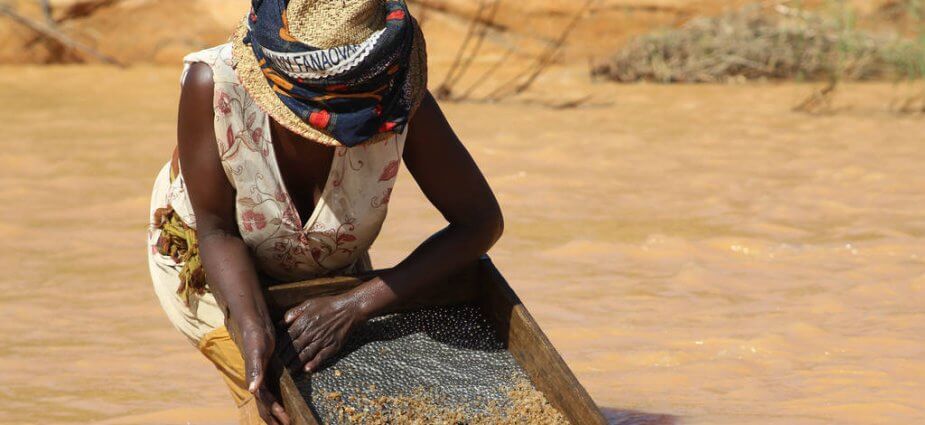Female sapphire miners in Madagascar are among the nation’s hardest workers and poorest people, but their future is looking brighter, thanks to University of Queensland (UQ) research. UQ Sustainable Minerals Institute PhD student Lynda Lawson has led the development of training and resources to improve the independence and financial autonomy of women sapphire miners.
“The most striking feature of the sapphire business in Madagascar is the absence of support for local people, particularly women, who seek to make a living in this trade,” she said. “The story of mining is so often seen as a male frontier, but there are many women involved in mining and no one has told their story.”
Lynda has spent the past four years working with the women to document and analyse their lives, focusing on the pathways, opportunities and challenges in the sapphire industry. Her work has attracted the attention of German development agency Deutsche Gesellschaft für Internationale Zusammenarbeit GmbH (GIZ), which asked her to complete a baseline study on women working in the south-west sapphire fields. “I found that these women were among the poorest in Madagascar, with very low rates of education and few opportunities,” she said. “Thousands of women are involved in work with sapphires and other gemstones in Madagascar, but they have very few opportunities to participate in the gemstone trade beyond sieving tailings in the river, surface mining and selling small stones.”
Lynda saw an opportunity for the women to add value to the stones they found and created a basic field gemmology course with UQ geology graduate and gemmologist Charles Lawson. “The first step in adding value is knowing about the gems you’re selling,” she said. “Each woman was supplied with a basic gemmology kit.” Lynda is now working on a suite of online materials to be used anywhere and a project focussing on health and safety issues related to cutting gems.
Readers also enjoyed our story about scientist Dr Katarina Miljkovic work on the Mars mission.












